Alibaba records USD 1 Billion sales within 18 mins on Singles Day!
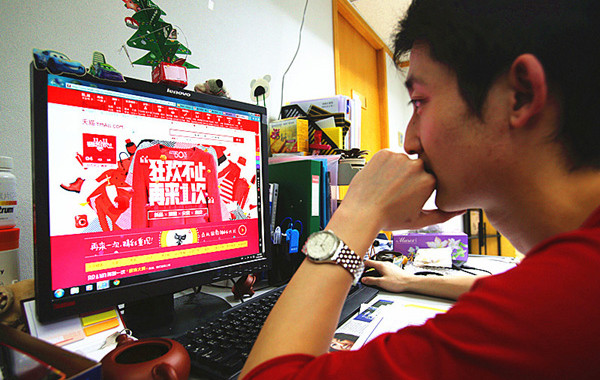
Who needs love when you’ve got money? Singles Day, the polar opposite of Valentine’s Day observed every year since the 1990s on November 11 by the Chinese youth, is China’s biggest online shopping day of the year. Even in India, most ecommerce players celebrated 11 November by offering heavy discounts – Snapdeal Savings Day, Amazon Appiness Day. However, the winner of them all emerged Alibaba.
Is Singles Day lucky for Alibaba?
Alibaba began to capitalize on the Singles Day fervor about 5 years back. On 11 November, 2012, Alibaba recorded a whopping $3 billion worth of sales in one day. About a month after, Alibaba trademarked the term “双十一” meaning “Double 11”. The following year, it rose to over $5.7 billion worth of sales through 150 million orders. But this year Alibaba broke its own previous record, exceeded expectations by 15%, crossed $1 billion worth of sales in less than 18 minutes, and ended the 24 hour sale having shipped 278 million orders that amounted to $9.3 billion worth of sales. More than 200 countries and regions participated this year, led by Hong Kong, Russia and the US. Though international sales figures were unavailable, it is estimated that Chinese consumers in America were the most powerful consumer groups for Taobao marketplace and Tmall.
How do Alibaba’s competitors react?
Much to Alibaba’s dismay, rival companies such as JD.com, Suning Commerce Group, Wal-mart Stores in China have also begun Singles Day sales of their own. Leading up to the big day, Alibaba, often termed as the Amazon of China but worth nearly twice as much, had issued letters warning publishers against running Singles Day Sale ads by other companies. Joe Tsai, Alibaba’s Executive Vice Chairman expressed his thoughts quite clearly, “I don’t think any other company in China can create a day like this.”
Are merchants happy?
Merchants are not obligated to participate in the Singles Day sale. But if they do, their only option is 50% off or more. If they don’t offer their products on Alibaba at prices lower than those on rival sites, merchants say that Alibaba limits their reach to customers by pushing them down the sales page. Despite sellers complaining of too much pressure, and too heavy discounts to be offered to survive the competition, Alibaba maintains that the number of participating vendors has increased exponentially from a meagre 27 in 2009 to a staggering 27,000 in 2014.
Do customers feel satisfied?
Buying is one thing, delivery another. With such high volumes of orders to be processed, delivery is bound to get delayed. “I tend not to buy things on Singles Day because the logistics just worry me too much,” said Ms Jiang, who runs a bakery in the western Chinese city Urumqi. She spent $325 on Singles Day, but would have liked to buy a lot more had she been confident of speedy and undamaged deliveries. “If I get the stuff I ordered this year in 10 to 15 days, I’ll be happy.”
What is Singles Day?
Guanggun Jie(literally meaning ‘naked sticks holiday’), or Singles Day, was born in 1993 in Nanjing University by a bunch of singles who found themselves in bars too often to find a date. The bored students, with the help of the internet and like-minded singles across schools and universities in the country, coined the now popular holiday on November 11 mainly because the date 11/11 resembles a physical representation of single people. This day has little religious or state significance, but it used to be a day when singles partied and celebrated in an attempt to end their singlehood. In recent times, Singles Day has been reinvented (revamping holidays is common- think Hallmark holidays such as Valentine’s Day and Sweetest Day) is more an e-tailer’s delight rather than a festive day, much like Black Friday, Cyber Monday and the newer Grey Thursday, all of which were dwarfed by Alibaba’s Singles Day sale.
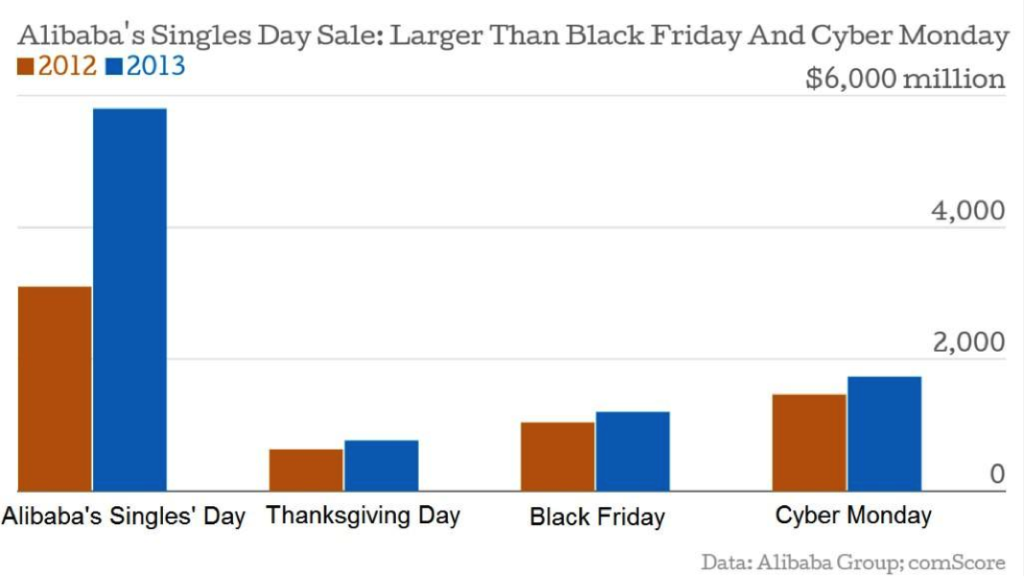
Singles Day in India
For a country that loves shopping online and has an increasing number of financially independent singles, Indian ecommerce market didn’t receive Singles Day too well. Or it could be a case of one size does not fit all, where the marketing strategy of Indian ecommerce sites was not good enough. Several Indian sites tried to use the day to their advantage, but nothing compared to what happened with Alibaba in China.
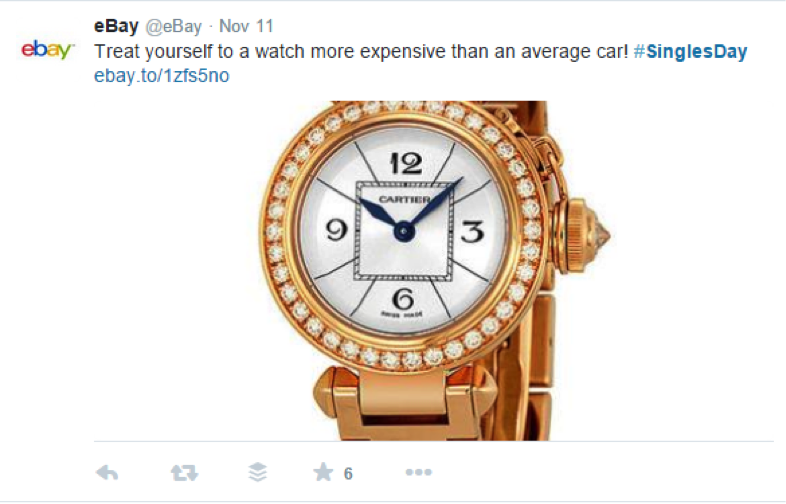
Amazon’s Appiness Day also was celebrated on 11 November, where shoppers who bought from Amazon using the mobile app received attractive discounts and a chance to win free shopping worth Rs.11000 per month for the next 11 months. Snapdeal’s Savings Day, which coincided with Singles Day, was much like a rerun of all that was wrong with Flipkart’s Big Billion Day – frequent site crashes, customers facing snag while making purchases, inaccessible cart etc.
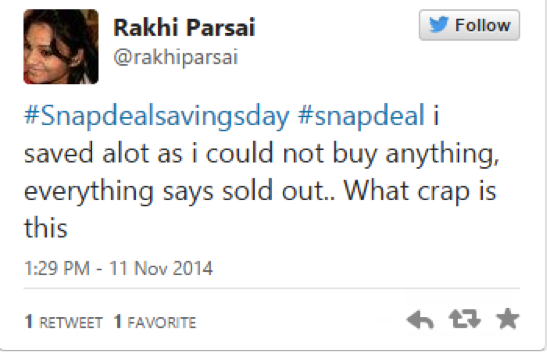
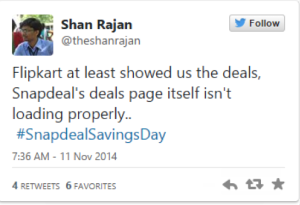
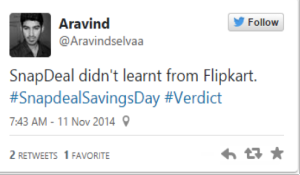
The level of competition is so stiff that soon, half the days in a year would be a special marketing day for some ecommerce player or the other. On the remaining days, we can go to work and earn enough to spend on those special days.
About Author

Editor team is specialized in introducing the marketplace content targeting the Indian online sellers. They plan and coordinate to bring the appealing content for the small businesses on how to partner with the e-commerce sites like Amazon and Flipkart and strategies for improving their online business.
Leave a Comment